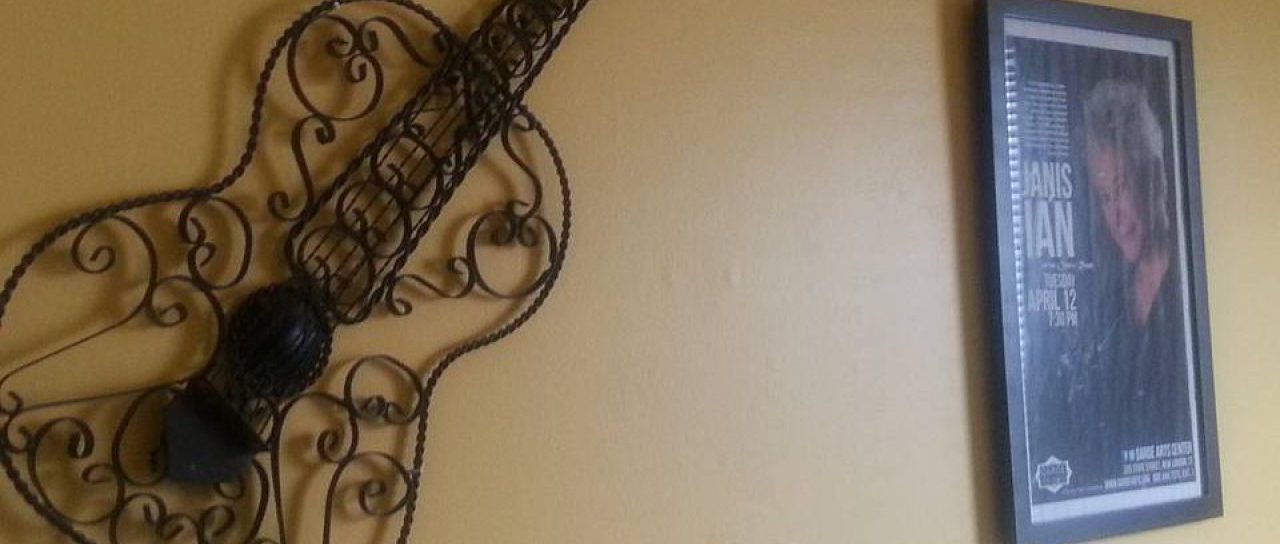My new handle for this blog will be digginforlyrics.
Questions asked …
This course surprised me. I started out thinking I would blog about website usability, but early on, was given the permission and the inspiration to find my truest voice. It is the voice of a songwriter.
I’ve been asking myself all the “coulda shoulda woulda” questions about taking this blog on the road, the online highway, for a long and illuminating spin. I’m finding I can, and should.
In me, for as long as I can remember, words have always been fighting to get out. Only four years ago, they emerged in song from a still yet reverberating place deep in the darkest, most confused, vulnerable reaches of my self. Remarkably, those inner workings also keep close quarters with some of the happiest places within.
(I haven’t shared those happier lyrics with you yet, but here’s one line from one of my newer songs that says it all: “I love who you are.”)
I’d like to spend more time in those far reaches, exploring what it means to be me — the late-blooming songwriter, the accomplished yet ever-improving guitarist, the shy singer and reluctant performer. I’d like to blog about what it’s like making connections with fellow songwriters and musicians on stage and in practice, learning the craft, and engaging like minds and souls from the far reaches of the Internet.
I’d like to share my growth and keep growing.
… And beginning to be answered
Answering this call means knowing myself, and knowing what I don’t know.
I have said to my classmate J. through this entire academic program that I didn’t think I could sustain an online presence of my own.
I now feel I want to sustain a songwriting blog. So I have been researching similar blogs, sampling youtube videos, and trying to fathom what it is I have to say that isn’t being said.
There are plenty of blogs about songwriting tips and personal journeys. I don’t know yet what’s good and what’s just blather. But I intend to find out. I have something to say — say in song and in a blog. I want to offer words that issue from the heart, not just the head.
This Undertaking Is No Joke
“Line!”
It’s almost worthy of Monty Python, that exclamation. It’s a running joke with my producer, that he would (and recently did) whisper “Line!” when I seemed to forget the words to my own song while performing.
The remedy? Keep performing. And keep writing — in verse and in a blog worthy of that verse.
The plan
Sharing this personal journey and the many songwriting tips I have learned is a start, but that alone will not set me apart from the pack.
It is the blog of the tuneful toddler written early in this class; the blog of a late bloomer with something to say and an original way of saying it, that will make my voice more original, and possibly gain a following.
Clearly, I don’t want digginforlyrics to be of interest only to lesbians, only to the AARP set (I am 50), only to songwriters. I want to appeal to all ages and identities, and to producers, sound engineers, musicians, and of course, listeners.
What I can share about this path of self-discovery through song is how I will stand out.
Tools and perspective
I recently discovered that a self-styled young music producer was following my tweets. He has more than 126,000 Twitter followers, and follows almost as many. That was encouraging. But when I followed him and sent a him a short tweet, he began posting risque, almost obscene tweets. So I unfollowed and blocked him.
An unfortunate but useful experience, one that confirms my desire to use Twitter as a tool on this journey to find potential, legitimate readers.
I’d also like to use the audio and video capacity of Word Press, which I will have to use judiciously since it isn’t cheap.
Finally, a critical decision will be how to take my blog from complete anonymity (and obscurity) into the realm of my real identity, using my real name. I want to do so because I have two CDs under my real name.
But my name is my trade: my online identity to date has been primarily as a working journalist. My byline and my songwriting identity are the same. How do I make this work ethically and in a practical sense? Lines have to be drawn between the two. Yet, there may be an opportunity for me to blog about songwriting in my own blog on my company’s online portal. Do I want to do that or keep it separate, personal and all to myself? Because it IS time-consuming to maintain and do right.
This is a question I don’t have an easy answer to and hope you, my classmates and fellow professionals, can help me with.
The Searchable Digginforlyrics Blog
I would like a first page of search results for my blog to turn up meta-descriptions like “say it in song,” “songwriting,” “lesbian lyricist,” and, as I grow and define my niche, “folk artist.” I would like catch-phrases like “late bloomer” and “personal growth” and “voice” to pop up, too. But I don’t want this blog to be so introspective and intent on navel-gazing that it loses the audience it is intended for: songwriters of every stripe from the rappers to the folkies to the rockers and the sea-chantey song-makers, who are practicing their craft and making music that matters.
Songwriting is, after all, apart from my work as a news reporter, my legacy. It is the one gift I can give from the depths of my being, a gift that gives so much back.
